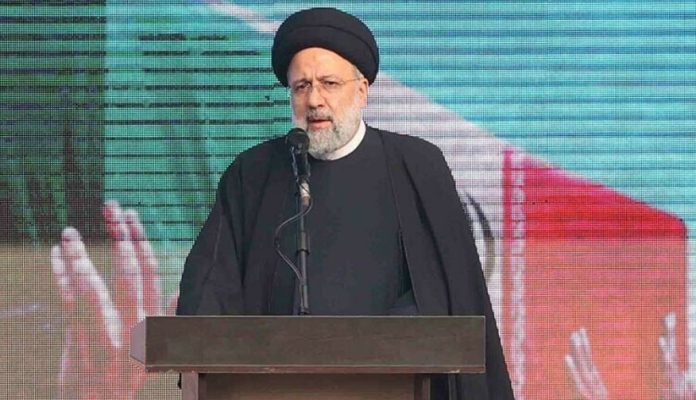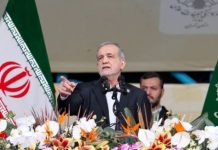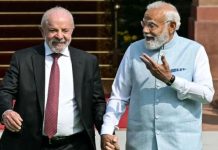Tehran, MAY 19: A helicopter carrying Iran’s President Ebrahim Raisi and other local officials was involved in a “crash upon landing” in Varzaqan region of the country under poor weather conditions on Sunday, state media Islamic Republic News Agency (IRNA) reported, with search and rescue efforts underway but no news yet on his condition.
Foreign Minister Hossein Amirabdollahian, Governor of East Azerbaijan province Malek Rahmati and others were also onboard the convoy, which comprised of three helicopters, of which the other two have landed safely.
“The harsh weather conditions and heavy fog have made it difficult for the rescue teams to reach the accident site,” state TV initially said in an on-screen news alert.
The head of Iranian Red Crescent Society (IRCS), Pir Hossein Kolivand, was quoted as saying by Iran’s Tasnim news agency that “40 rapid response teams from the IRCS are currently conducting search operations” in the area where the helicopter carrying President Raisi was reported to have crashed.
Kolivand said that the “weather conditions are extremely unfavourable and the terrain is difficult to navigate,” but “we are making every effort to carry out the necessary actions.”
“We have utilised drones and aerial measures, but due to the poor weather conditions, aerial search operations are not feasible. The area is rugged and mountainous,” he added.
“We have also dispatched forces from specific provinces to ensure that more personnel are on-site.”
Meanwhile, Iran’s ISNA news agency reported that rescue teams have reached the crash site. They posted a video of rescue personnel on their X page.
The semi-official Fars news agency called on Iranians to pray for Raisi following the reports.
A handout picture provided by the Iranian presidency on May 19, 2024, shows Iran’s President Ebrahim Raisi (L) and his Azeri counterpart Ilham Aliyev meeting at the site of Qiz Qalasi ahead of its inauguration ceremony.—AFP
Raisi was visiting East Azerbaijan province on Sunday where he inaugurated a dam project in the company of his Azeri counterpart, Ilham Aliev, on the border between the two countries.
Years of crisis and conflict
Raisi has been president of the Islamic Republic since June 2021, succeeding the moderate Hassan Rouhani, for a term during which Iran has faced crisis and conflict.
He took the reins of a country in the grip of a deep social crisis and an economy strained by US sanctions against Tehran over its contested nuclear programme.
Iran saw a wave of mass protests triggered by the death in custody of Iranian Kurd Mahsa Amini in September 2022.
In March 2023, regional rivals Iran and Saudi Arabia signed a surprise deal that restored diplomatic relations.
The bombardment in Gaza that began on October 7 sent regional tensions soaring again and a series of tit-for-tat escalations led to Tehran launching hundreds of missiles and rockets directly at Israel in April 2024.
In a speech following Sunday’s dam inauguration, Raisi emphasised Iran’s support for Palestinians, a centrepiece of its foreign policy since the 1979 Islamic revolution.
“We believe that Palestine is the first issue of the Muslim world and we are convinced that the people of Iran and Azerbaijan always support the people of Palestine and Gaza and hate the Zionist regime,” said Raisi.
Raisi, born in 1960 in northeast Iran’s holy city of Mashhad, rose early to high office. Aged just 20, he was named prosecutor-general of Karaj next to Tehran.
He served as Tehran’s prosecutor-general from 1989 to 1994, deputy chief of the Judicial Authority for a decade from 2004, and then national prosecutor-general in 2014.
His black turban signifies direct descent from the Prophet Mohammed, and he holds the religious title of “Hujjatul Islam”, literally “proof of Islam”, one rank below that of ayatollah in the Shiite clerical hierarchy.
He was in Pakistan on a three-day visit last month where the two sides committed to increasing the trade volume to $10 billion over the next five years and attempted to mend ties after tit-for-tat missile strikes in January.

















